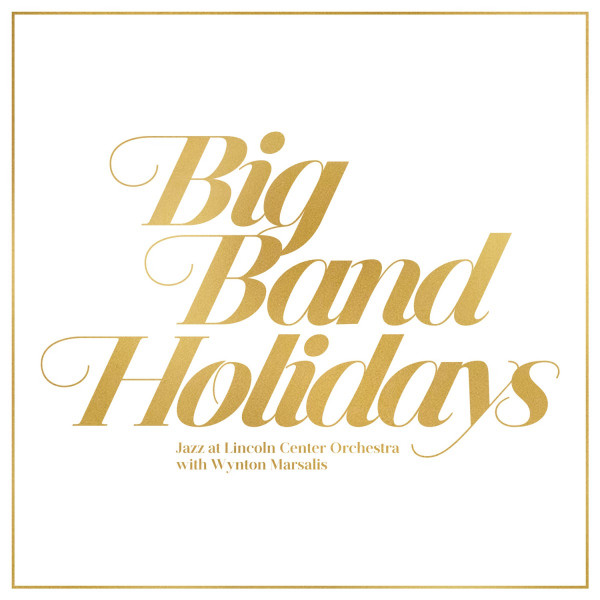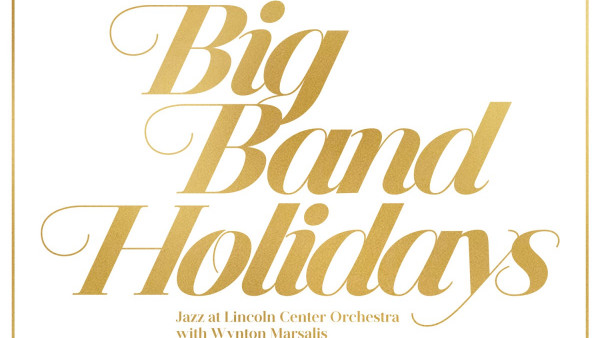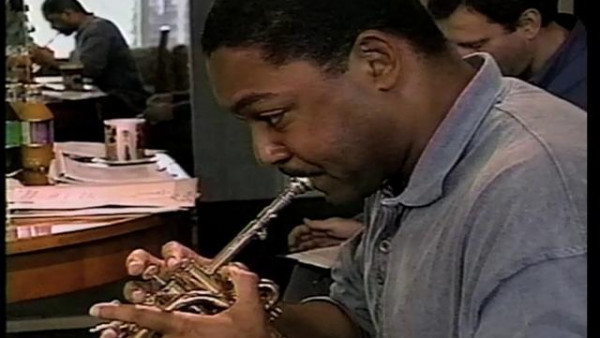The leading man of jazz
In 1994, when Wynton Marsalis was only six years into his tenure as artistic director of the Jazz at Lincoln Center Orchestra, Ed Bradley did a 60 Minutes profile on the New Orleans jazz man.
“Not long ago, people were saying jazz was dead and nobody wanted to hear it anymore,” Bradley said, “but then Marsalis and his trumpet came along and breathed new life into the music.”
Bradley talked with Marsalis while the latter was ironing a shirt for that night’s performance. “It’s like a prom,” Marsalis said. “Every night is a ceremony, and this is a part of that ceremony. People have taken the time to check out our concert, and that’s a serious thing to me. And I want to have something on that’s going to make them feel good, so if I’m not playing nothing, they’ll say, ‘At least he was clean. He couldn’t play, but at least he was clean.’ “
Talking on the phone last month before a Jazz at Lincoln Center gig in Schenectady, N.Y., Marsalis laughs at the memory because, as it happens, he already has the ironing board out. “I’m opening my suitcase right now,” he says. “It’s a preshow ritual. Not just my shirt: my whole suit. It’s just what I do.”
Marsalis will look clean and pressed three times in the Philadelphia region in the coming days. On Friday, he leads the 15-man JALC Orchestra into the McCarter Theatre in Princeton, and Saturday they’ll do two performances at the Exit 0 International Jazz Festival in Cape May. The band has just released two albums – of a planned 80 over the next 10 years – on the newly launched Blue Engine label. Live in Cuba, recorded in 2010, showcases Carlos Henriquez, the bassist and arranger who was a former student of Marsalis’. (“I used to teach him, and now he teaches me.”) There’s also Big Band Holidays, a collection of Christmas classics and spirituals featuring singers Cécile McLorin-Salvant and Gregory Porter.
And on Nov. 10, the trumpeter and music educator – who is director of the jazz-studies program at the Juilliard School, which he dropped out of in 1980 to join Art Blakey’s Jazz Messengers – will receive the Marian Anderson Award.
Named for the Philadelphia contralto and civil rights trailblazer, and given annually to “critically acclaimed artists who have impacted society in a positive way,” the award will be presented at a Kimmel Center gala hosted by Soledad O’Brien and featuring American Ballet Theatre dancer Misty Copeland and singer Lalah Hathaway.
“It means a great deal,” says Marsalis. “I love Marian Anderson and the whole tradition of excellence that she represented: Roland Hayes, [the African American tenor who mentored Anderson] and all the music of that time. And not only the Afro American tradition, but the whole American tradition of cornet playing that goes back to Francis Johnson, Ned Kendall, and Patrick Gilmore in the 19th century. I’m honored to accept as a representative of the values of the award.”
The casual erudition with which he drops names of his forebears is typical of Marsalis, the former Young Lion who continues to make jazz advocacy his life’s work. (He also has a classical pedigree: He became the only artist ever to win Grammys in both jazz (1983-87) and classical music Grammys (1983 and 1984).
Marsalis has often been labeled a musical stick-in-the-mud, dogmatic in his definition of what is and isn’t jazz. But Jon Batiste, the freewheeling Late Show with Stephen Colbert bandleader who, like Marsalis, grew up in a storied musical family outside New Orleans in Kenner, La. – and who played in Marsalis’ band in the ’00s – thinks that mischaracterizes his former boss’ vision.
“Before he emerged as a young musician,” Batiste says, “jazz had become a fusion-based thing. There weren’t a lot of people drawing on the earlier music of the American tradition. Then he started to draw on that, and compose music with those elements in it. It’s really a holistic concept of jazz. The concept is all jazz is modern.
“So what I think a lot of people don’t understand is he is actually one of the groundbreaking artistic figures who thought broader than everyone else in his generation. He pushed the envelope in a way.”
Growing up in Kenner, the son of an esteemed pianist and educator, whom he calls “such a natural teacher,” Marsalis played in funk bands with older brother Branford, drawing much larger crowds than his father, Ellis, attracted.
Did that injustice drive him to earn the music the respect it deserves?
“No, because he was not the type to proselytize. I think my resilience comes from watching him and the type of integrity he had about playing. I’m very pragmatic like him. He liked playing. He was willing to sacrifice to do what he loved. He was so for real about his circumstances. And he never complained about anything.”
The challenges facing young musicians wanting to play jazz today is a subject that gets Marsalis’ dander up.
He believes the music is “definitely in better shape than when [Jazz at Lincoln Center] started. But it is a constant uphill battle in our culture, because we’re battling against a culture of pornography. You’re going up against something more basic than music. I mean, it’s all around us. It doesn’t even have to be explained. Everywhere you turn, there it is. ‘Bitch Better Have My Money,’ “ he says, citing the title of a recent Rihanna hit.
“I mean, it’s rough if you’re developing your sexuality. Because what are you going to do? Tell a 12-year-old to turn that off? I wouldn’t turn it off. It’s powerful, and it takes up the bandwidth for everything else. It’s kind of like you have a license to sell dope in a middle school. And I’m not a Draconian person. I’m from New Orleans. But when you’re 12 or 13, it’s hard. And the reason it’s a concern for jazz is that music lies in that slice. It occupies the same space.”
At 54, Marsalis remains committed. “When you’re in your 20s, you’re feeling yourself,” he says. “And then as you settle into your age, you do even better work.”
The most important part of his job, he says, is “having integrity and belief and embodying the mission of our institution.”
The mission is “to entertain, to educate, and to advocate. So when I’m playing, I’m always cognizant of the fact that it’s entertainment. I want people to enjoy themselves. And when we’re teaching, we want to be about substance. Jazz music is still here. It’s viable, it’s an art form.”
At the Anderson Award gala, the trumpeter will lead the Wynton Marsalis Septet, with a stripped-down version of the JALC big band.
“I don’t know what we’re going to be doing yet,” he says, signing off from Schenectady as he gets ready to take the stage in his newly pressed suit. “But we’re going to be serious, either way. Whatever it is, we’re going to be fine.”
by Dan DeLuca
Source: Philadelphia Inquirer




